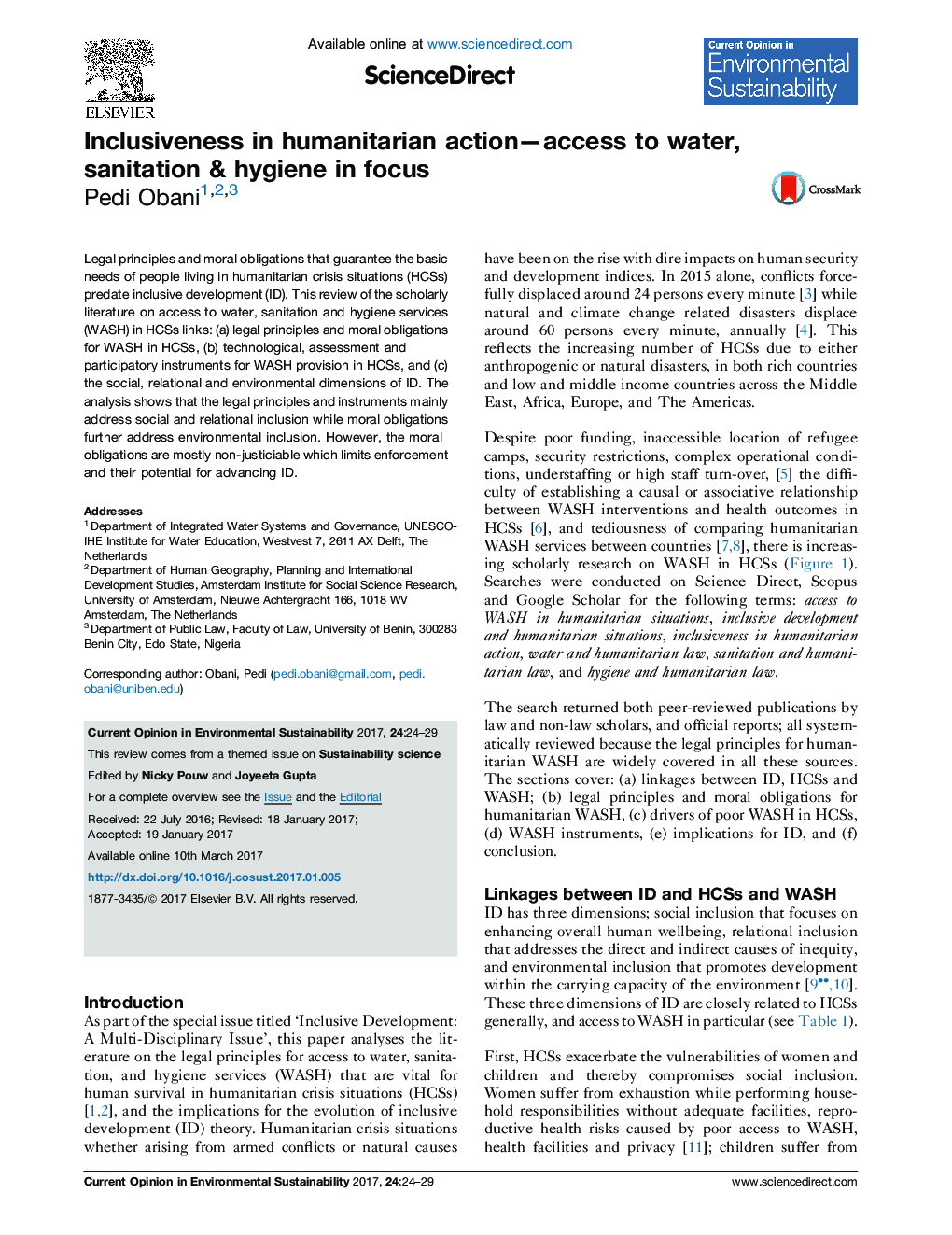| Article ID | Journal | Published Year | Pages | File Type |
|---|---|---|---|---|
| 5115397 | Current Opinion in Environmental Sustainability | 2017 | 6 Pages |
â¢Anthropogenic & natural disasters displace around 84 persons every minute.â¢Legal principles & moral obligations protecting victims of disaster predate ID.â¢Legal principles & WASH instruments mostly prioritise social & relational inclusion.â¢Legal principles & WASH instruments may compromise environmental inclusion.â¢Moral obligations for WASH promote the three dimensions of ID but lack justiciability.
Legal principles and moral obligations that guarantee the basic needs of people living in humanitarian crisis situations (HCSs) predate inclusive development (ID). This review of the scholarly literature on access to water, sanitation and hygiene services (WASH) in HCSs links: (a) legal principles and moral obligations for WASH in HCSs, (b) technological, assessment and participatory instruments for WASH provision in HCSs, and (c) the social, relational and environmental dimensions of ID. The analysis shows that the legal principles and instruments mainly address social and relational inclusion while moral obligations further address environmental inclusion. However, the moral obligations are mostly non-justiciable which limits enforcement and their potential for advancing ID.
